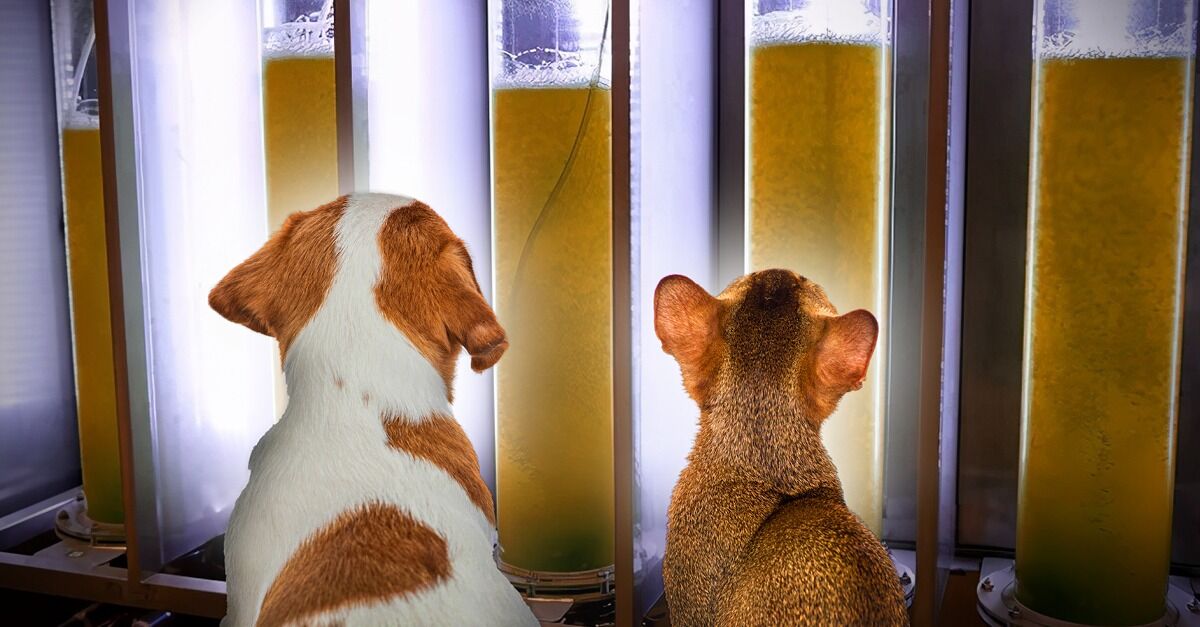

Your region has been set to
Change region
Close


Your region has been set to
Change region
Close



March 24 2022 - News

When we think of omega-3s, we usually think of fatty fish, such as salmon. However, the reason why fish contain healthy long-chain omega-3 fatty acids, such as DHA, is because they consume algae. In the past few years, these microscopic marine organisms have become a game-changing ingredient in aquaculture feeds – and they are now conquering the world of pet food. Algae are not only packed with omega-3s, they are also the most sustainable source available. Algae could therefore be the solution for meeting the growing demand for omega-3 fatty acids.
An article published in February of this year, stated that algae are no longer considered a niche ingredient. Since appearing on the market in 2016, they have been a game-changing strategic ingredient in aquaculture feeds. Anders Brandt-Clausen, managing director at BioMar Baltics, one of the world’s leading suppliers of aquaculture products, says “We are now delighted to increase the volumes we use significantly and raise the sustainability bar. Microalgae are no longer a novel idea; they have become a commercial reality. We see this as the birth stage for next-generation feeds with a highly sustainable profile. Adding algae paves the way for further developments in our sustainable feeds from which our farmers will directly benefit through a reduction in their own on-farm footprint.”
The benefits of omega-3s are widely known. These fatty acids play an essential role in the physiological processes of humans and other mammals, including cats and dogs, which make Algae DHA such an interesting ingredient for pet food. DHA within omega-3s have been found to promote heart health, combat inflammation and help slow down the progression of kidney disease, which is especially important for aging cats. Furthermore, older pets suffering from cognitive dysfunction showed improved recognition of family members and other dogs when supplemented with omega-3s. As an added bonus, omega-3s reduce skin shedding by protecting fur from the roots, great for pet parents who suffer from allergies!
Although algae are abundant in both seawater and fresh water, they can be cultured for commercial use under different conditions and using different methods. Algaculture, as the aquaculture of species of algae is referred to, enables large production volumes of DHA long-chain fatty acids at an economic scale and offers a consistent supply at a consistent quality, independent of geography, seasonality or changing climate conditions. It has a low carbon, water and land-use impact compared to other omega-3 sources and helps to prevent the depletion of small fish species for use in fish oil as the global demand for omega-3s increases.
Algae can be cultured under different conditions and using different methods, including a phototrophic or heterotrophic culture strategy. Using a phototrophic strategy, the algae need water, nutrients, air, and light to convert the absorbed water and CO2 into biomass through photosynthesis. This can be done in open ponds or in a closed photo-bioreactor. However, phototrophic methods are limited in their production scale and economic viability due to the complex light supply system required. That is why the most viable, sustainable, and economically interesting production method is to grow algae in a heterotrophic environment. A comprehensive Life Cycle Analysis (LCA) of heterotrophic algae omega-3 DHA showed that this product’s impact on climate change is about 30-40% lower than fish oil’s.
Pet parents are becoming more conscious about health and sustainability, which is why transparency around the sourcing of products is so important. This also goes for omega-3s. A balanced diet with appropriate levels of omega-3s is necessary for the health and wellbeing of pets, such as cats and dogs. IQI Trusted Petfood Ingredients provides Premium Algae DHA, produced and sourced sustainably in Brazil, with a minimum DHA content of 28%. Since IQI’s algae DHA solution does not contain the contaminants typically found in fish oils, such as PCBs and dioxins, the application of IQI’s Algae DHA solution provides the flexibility pet food brands need to increase DHA levels in their formulations and provide higher-quality, healthier options for pets.
Are you interested in learning more about Algae DHA as a pet food application? Our white paper ‘Microalgae as a clean source of long-chain omega-3 fatty acid for pet food‘ explains all you need to know about the different fatty-acid chains and why these are so beneficial for pets.
Geert van der Velden is IQI Trusted Petfood Ingredients’ Innovation Manager responsible for Business Development, generating new products and concepts that meet the needs of existing and new customers. Geert has more than 25 years’ experience in the international pet food industry and has gained knowledge and experience in many sections of IQI’s business.